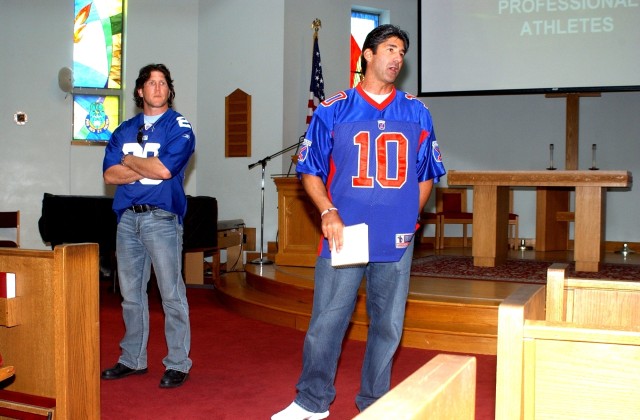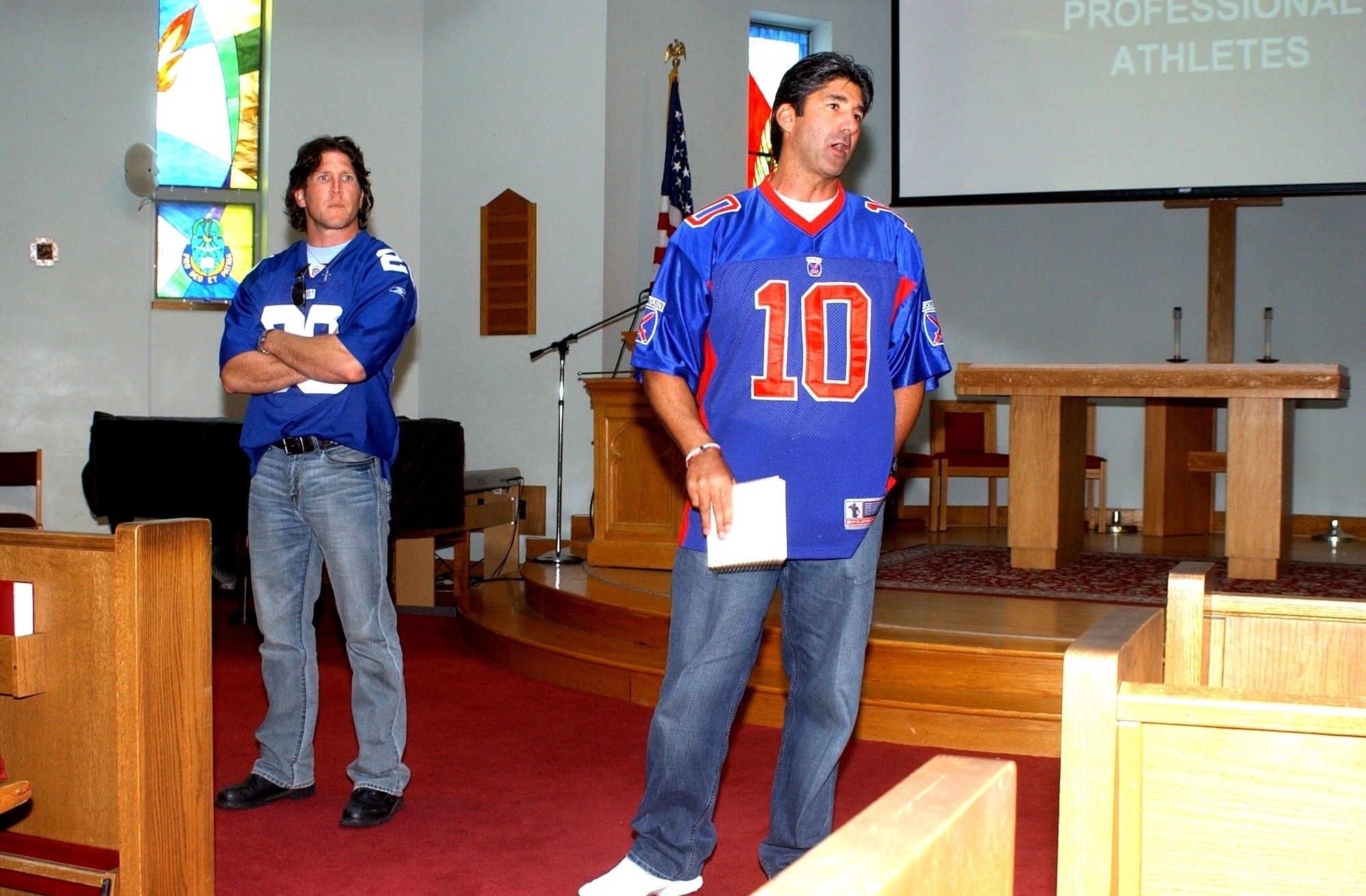FORT DRUM, N.Y. -- Two former professional athletes provided Soldiers with some insight and fellowship during a chaplain's leadership luncheon Sept. 15 at Fort Drum's Main Post Chapel.
Keith Elias, former running back for Princeton University, the New York Giants and Indianapolis Colts, and Anthony Telford, who pitched for the Baltimore Orioles, Montreal Expos and Texas Rangers, were on post with Bryan Hickerson, who pitched for the San Francisco Giants, Chicago Cubs and Colorado Rockies.
Hickerson is director of a ministry to the military through Unlimited Potential, Inc. Through the program, the three athletes spent the weekend here speaking to Soldiers and Family Members, visiting with them and even doing PT with troops Monday morning.
During the luncheon, Elias and Telford offered advice on what they think makes a good leader.
Elias said he played football under some coaches who yelled and put him down if he made a mistake, but they were not as effective as coaches who encouraged and motivated him.
"One coach grabbed me after I fumbled the ball and said to me, 'You just be you, because when you're you, you're unstoppable.' He basically made me feel like I could take on the world, and that motivated me," Elias said.
Elias told another story about a football player who was a leader on one of his teams. The coach was about to yell at Elias for making a mistake, but the other player stepped forward and said it was his fault, that he probably did not explain the play correctly. Later, in private, the other player corrected Elias and told him to come prepared next time.
"He took the hit for me, and from then on, I could've died for that guy," Elias said. "Those two leaders in my life showed me they loved me, that they cared. If your Soldiers know you love them, they won't want to disappoint you."
Elias said an example of a great leader is David from the Bible. People wanted to take his life, and he had to live in caves and in the dirt.
"He had a group of mighty warriors who fought with him, lived with him, got rained on, got sunburned. All they had to do to end their misery was turn this guy in, but they kept following him and staying loyal," Elias said. "The Bible says that proved how he was as a leader, that he had skillful hands and integrity of heart. He had character. Be proficient in your craft and lead with solid character, and you'll create other men and women of character from your example."
Telford said Nehemiah from the Bible proides a solid example of leadership for him.
"Nehemiah inspired a group of people to do something that should have taken years and years and years to be done in 49 days. That's an amazing example of leadership."
Telford added advice he learned from personal experience with coaches and other leaders in his life.
"I remember vividly and candidly the good coaches I had," Telford said. "I think good leaders are faithful, available and teachable. You can lead by being negative or you can lead by being positive. As a leader, do your Soldiers have to follow you, or do they want to follow you' You should be the leader who the Soldiers want to follow."
Chaplain (Maj.) Alan Savage, 2nd BCT chaplain, 10th Mountain Division, shared some thoughts on leadership, as well.
"You can study leadership and have all the right facts, but that doesn't mean you're going to come out being a good leader. You need wisdom," he said. "And unless you're willing to change, you won't do well."
Savage said there are a few main responsibilities coaches or leaders have: to increase self-confidence in players / Soldiers; to educate, motivate and supervise excellence; to maintain high fitness standards; and to emphasize discipline, dedication and determination.
He also spoke of influential leaders from his past, such as his boxing coach. Savage was losing an important match, and his coach told him, "You've already quit - that's why you're losing."
Savage said he went on to win that fight because he wanted to do it for his coach who had believed in him, spent his Saturdays with him, put so much effort into him. He, Savage said, was a leader.
After spending time with Soldiers, Elias said he felt unqualified to be teaching them how to be leaders.
"These are the greatest leaders in the world. They lead men and women who could die," he said. "The sheer audacity of coming and telling these guys how to carry out good leadership is like going up to Tiger Woods and teaching him how to hit a golf ball or perfect his swing."


Social Sharing